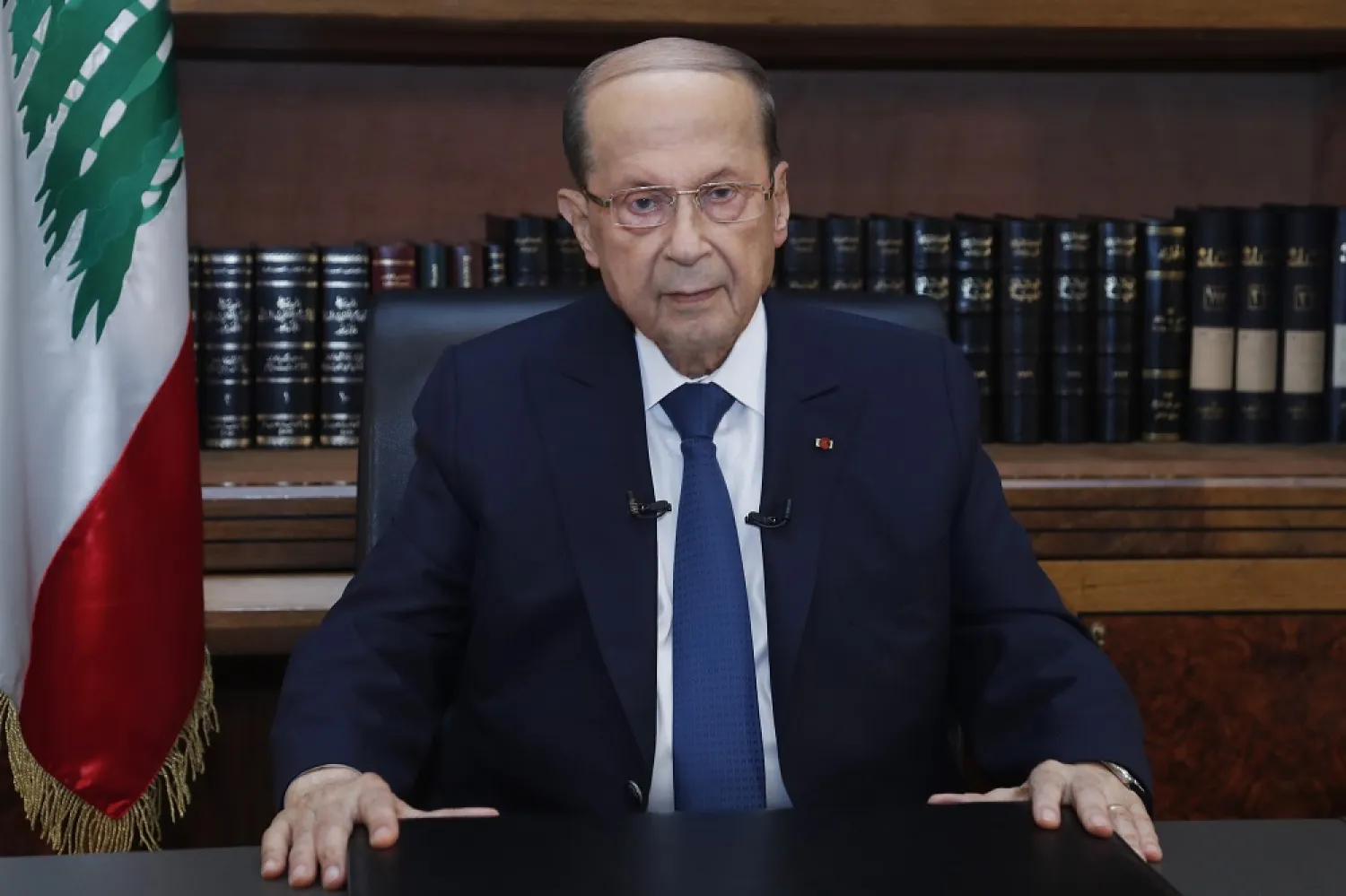Lebanon’s President Michel Aoun said on Tuesday he was fully supportive of an impartial investigation on last summer’s Beirut port blast.
In a televised speech on the eve of the anniversary of the explosion that killed over 200 people, injured thousands and destroyed large swathes of the city, Aoun also said he was for a strong judiciary that would not back down when questioning any officials, no matter how high they ranked.
“Justice delivered late is not justice,” he said.
The blast, one of the biggest non-nuclear explosions ever recorded, was caused by a massive quantity of ammonium nitrate that had been left at the port since 2013.
One year later, no senior official has been brought to account, angering many Lebanese. A local investigation is stalling as requests by the lead investigating judge to lift immunity and question top officials are hampered.
Protests have been called for Wednesday to demand justice.
Maronite Patriarch Beshara al-Rai is due to lead a mass at the port to be attended by families of the victims.
A report released by Human Rights Watch on Tuesday concluded there was strong evidence to suggest some Lebanese officials, including the president, knew about and tacitly accepted the lethal risks posed by the ammonium nitrate, which can be used to make fertilizer or bombs.
Businesses and government offices are expected to close on Wednesday for what the state has declared an official day of mourning.
The blast occurred when Lebanon was already suffering a deep economic crisis that has worsened in the last year.
The World Bank says Lebanon is suffering one of the worst depressions in modern times. More than half the population is in poverty and the currency has lost over 90% of its value.
Aoun said on Tuesday he was exerting all efforts to remove any obstacles towards forming a salvation government to implement reforms and lift Lebanon out of its financial meltdown.
Prime Minister Hassan Diab’s government quit after the blast and continued only in a caretaker capacity. But Lebanon’s main parties have failed to form a new government, with squabbles over roles in a cabinet obstructing any agreement.









